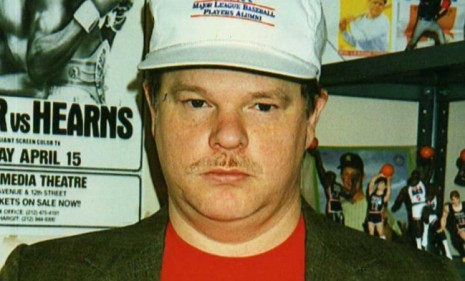Africa's child-witch hysteria
A new UNICEF report says accusations of child witchcraft are on the rise in Africa — leaving kids vulnerable to abuse, abandonment, and horrific "exorcisms"

A free daily email with the biggest news stories of the day – and the best features from TheWeek.com
You are now subscribed
Your newsletter sign-up was successful
According to the United Nations Children's Fund (UNICEF), accusations of child witchcraft are on the rise in several African countries — with horrifying consequences. Reportedly, kids who are branded "child witches" are being subjected to tortuous "exorcisms." Some have been set on fire, had so-called "healers" pour petroleum into their eyes and ears, or even been killed. Children as young as three years old have been thrown out of homes by their parents and left to fend for themselves in the bush. What exactly is happening here, and what can be done to stop it? (Watch a short documentary about Africa's child witches)
How long has this been going on?
The concept of child witches first took hold in Africa in 2006, says Aleksandra Cimpric, a witchcraft-violence researcher in the Central African Republic, as quoted in Voice of America, noting that, traditionally, the charge of witchcraft has been reserved for adult or elderly women.
The Week
Escape your echo chamber. Get the facts behind the news, plus analysis from multiple perspectives.

Sign up for The Week's Free Newsletters
From our morning news briefing to a weekly Good News Newsletter, get the best of The Week delivered directly to your inbox.
From our morning news briefing to a weekly Good News Newsletter, get the best of The Week delivered directly to your inbox.
What characteristics do the accused children share?
The majority are boys between the ages of 8 and 14. Typically, those most at risk are unique or "different" in some way — be they orphans, street children, albinos, children with mental or physical disabilities, gifted children, twins, or those born prematurely or in an unusual position.
Where specifically is this happening?
According to the UNICEF report, the phenomenon is most prevalent in the Democratic Republic of Congo, Angola, Benin, Cameroon, Central African Republic, and Nigeria.
A free daily email with the biggest news stories of the day – and the best features from TheWeek.com
What's fueling this crisis?
UNICEF links the increase in child witchcraft accusations to various factors: urbanization, weakening family structures, the HIV crisis, poverty and the growing burden of raising children. In some affected countries, experts suggest, growing interest in Pentecostal and revivalist churches is enforcing superstitions. Pastor-prophets are claiming they can identify child witches and charging hefty fees to exorcise them of their demons. A Bishop in Nigeria made a small fortune charging $261 a pop to perform (supposedly) cleansing rituals.
How many children are involved?
No one knows for certain. The UNICEF report cites a study estimating that more than 20,000 children are living on the streets of Kinshasa, the capital city of the Democratic Republic of Congo, because they had been accused of witchcraft and abandoned.
What is being done to help these children?
Decriminalizing witchcraft in these countries might help, but there's no simple solution. "It [calls for] sensitization, working with church leaders [and] religious leaders, but also with traditional practitioners," says Joachim Theis, UNICEF's Regional Child Protection Adviser for West and Central Africa, "and providing a comprehensive package of support for children who have been accused of witchcraft."
Sources: BBC News, CNN, Angola Press, Voice of America
-
 Political cartoons for February 12
Political cartoons for February 12Cartoons Thursday's political cartoons include a Pam Bondi performance, Ghislaine Maxwell on tour, and ICE detention facilities
-
 Arcadia: Tom Stoppard’s ‘masterpiece’ makes a ‘triumphant’ return
Arcadia: Tom Stoppard’s ‘masterpiece’ makes a ‘triumphant’ returnThe Week Recommends Carrie Cracknell’s revival at the Old Vic ‘grips like a thriller’
-
 My Father’s Shadow: a ‘magically nimble’ film
My Father’s Shadow: a ‘magically nimble’ filmThe Week Recommends Akinola Davies Jr’s touching and ‘tender’ tale of two brothers in 1990s Nigeria